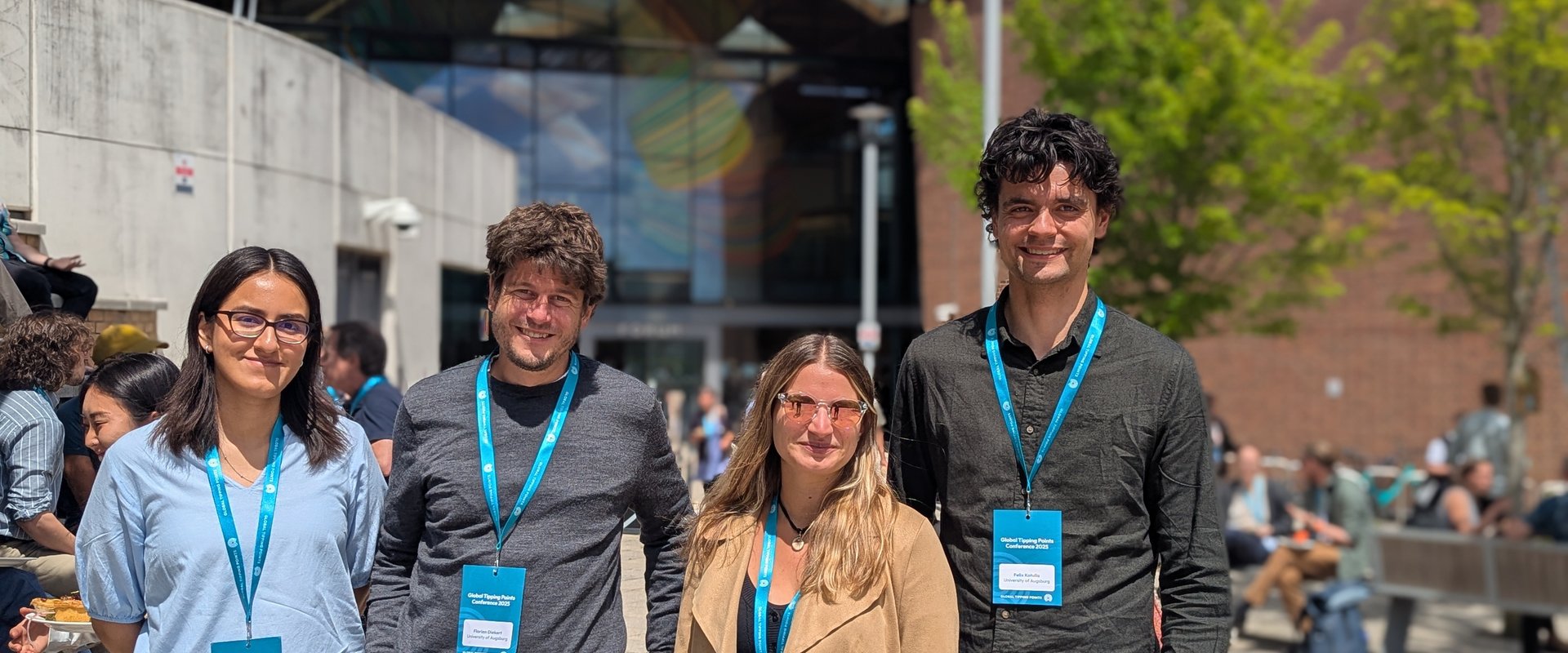Chair of Environmental Economics @ Global Tipping Points Conference 2025
? Three members of the Environmental Economics research group of the 伟德国际_伟德国际1946$娱乐app游戏 of Augsburg attended the second edition of the Global Tipping Points Conference in Exeter in the United Kingdom. The conference, which took place from June 30 to July 3, offers different perspectives on tipping points and is open to researchers from various disciplines as well as professionals and others concerned with climate change and tipping points. Anna Maier presented the research project “The Effect of a Normative Appeal on (A)symmetric Teams”. This research project is joint work with her colleagues Carolin Kreier, Patrick Hoffmann and Florian Diekert. In her presentation, she described how a normative appeal can affect cooperation among teams with opposing action spaces. Florian Diekert Kotulla organized a research session together with Ruth Chapman (伟德国际_伟德国际1946$娱乐app游戏 of Copenhagen) and Paul Ritchie (伟德国际_伟德国际1946$娱乐app游戏 of Exeter). The title of the session was “early warning signals for tipping points: from detection to action”. The session featured a number of research projects ranging from the development of a new early warning indicator for strongly forced systems to the detection of early opportunity signals in the transition to electric vehicles and probabilistic early warning signals for noise-induced tipping. Felix Kotulla presented a research design to study decision-making behavior in tipping point scenarios with and without early warning signals in the research session “Early warning signals for tipping points: from detection to action”. Based on this research design, the project aims to contribute to a better understanding of the decisions made when an early warning system is available to resource users. In addition, Miriam Rodriguez Carrasco, BRaVE doctoral student and part of the research group for Climate Resilience of human-made ecosystems, attended the conference in Exeter. The Global Tipping Points conference in Exeter was a great experience for the participants. In addition to the research sessions, the conference included plenary discussions with well-known climate scientists, action workshops and poster presentations, which provided many opportunities to learn about climate change, the damage and consequences of climate change that are already visible, and the risks and uncertainties associated with the future development of the world climate system. 

